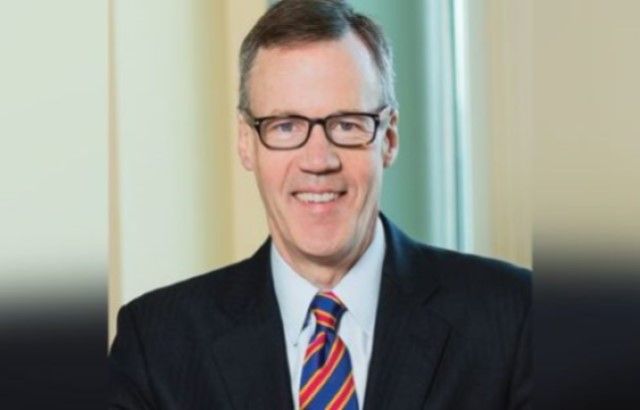Investors should be wary of committing to long term investment in European stocks which risk being caught in the clash between Washington and Beijing, Barings has warned.
Christopher Smart, chief global strategist & head of the Barings Investment Institute, warns that EU firms could be hurt by a range of global challenges ranging from US sanctions to state-backed Chinese rivals. They may even be forced to choose between two sets of global supply lines.
Smart is also concerned that Europe, while more resilient than some of the more feverish headlines suggest, is also not making the required reforms to give it leverage in a world of intense economic and political rivalry.
“The continent has made remarkable progress towards integrating markets and sharing sovereignty, but its economic interests remain vulnerable in a world that once again favours a sharp elbow over a Memorandum of Understanding. Investors eyeing Europe’s long-term growth prospects will need to see more of a strategy to avoid collateral damage from the crossfire between Washington and Beijing. This will get increasingly tricky,” he says.
There are numerous challenges, for example, Europe leaders are on the back foot in terms of their Iranian strategy in the wake of President Trump’s decision to repudiate the nuclear deal with the risk of further escalation.
Still in the area of energy, US measures are looming against the Nord Stream 2 pipeline which would expand Russia’s energy presence but also, of course, supply natural gas to Germany although the pipeline remains controversial with other EU countries as well.
Huawei – a strategic dilemma
Huawei also presents Europe with a strategic dilemma. He says: “In the showdown over the purchase of advanced telecommunications equipment from China’s Huawei, European governments are being pressed to declare their loyalties. If it is still unthinkable that they will side with China against the United States, it has also become increasingly difficult for them to side with President Trump on much of anything.”
Smart says that with issues of trade, economics and security now wrapped up together and Europe so dependent on exports which are vulnerable to tariffs, that the EU needs to be pressing ahead on matters such as defence and foreign policy to give it further leverage.
He adds: “Without a coherent foreign policy or an independent defence pillar, Europe doesn’t have the cross-leverage to protect its interests. Its economic influence is limited, too. The EU’s exports top 45% of GDP, which makes more tariffs or trade barriers especially harmful. Moreover, European firms don’t want to unilaterally forego either the latest American or Chinese technology.”
He also notes that many EU countries remain hungry for investment.
“Europe welcomes China’s rising levels of investment but worries about the attached strings. European Union resolutions on Chinese activity in the South China Seas or human rights practices have been diluted by Slovenia, Hungary and Greece, which have been wary of jeopardizing important Chinese inflows. Beijing’s investments in advanced European technology raise concerns about their use for military purposes, too.”
He adds that recommendations for economic reform such as those from Brussels-based thinktank Bruegel for the creation of a European safe asset are likely only to be considered in the heat of a new crisis, while EU politicking is far from encouraging.
“The explosive idea around a European “safe asset,” will not see the light of day – at least until the next crisis pushes Europe to the brink. They will also understand that even the most substantive of these ideas demand a more coherent approach to foreign policy among member states. Even without Britain, the remaining 27 will have a hard time.
“Especially unsettling is the sight of European leaders convening once again to arm-wrestle over the nationality of the next presidents of the European Commission and the European Central Bank. Any remaining bandwidth will go to stories of Boris Johnson and Italian public spending rather than protecting Europe’s long-term economic interests.”







